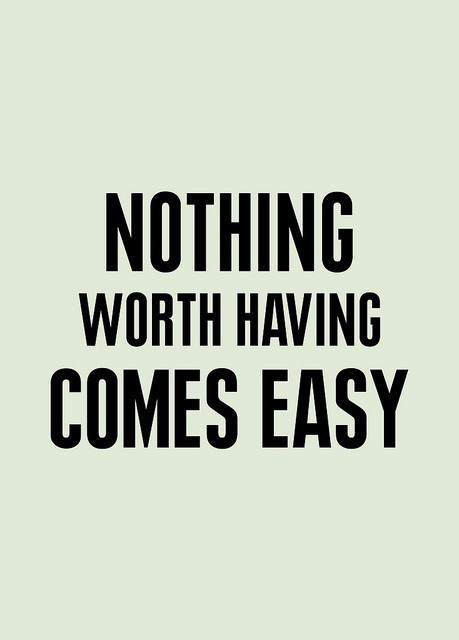It’s not even close.
We like to say this to ourselves nonetheless. We tell our employees, peers, and children, that if you just work hard, everything will be OK. Many of us learned this way as well. It’s a meme that has accelerated in the past decade if you pay attention to trends in employee development, education and schooling.
“A’s for effort.” “Participation awards.” “Perfect attendance medals.”
Just show up, keep your head down and push hard.
It’s a complete lie. None of those behaviors guarantee success.

Really? Who says?????
That’s not even the sad part. I’m concerned about the impact this “hard work mindset” has on people’s happiness. I’m particularly worried about what it’s doing to our kids.
The Big Lie
You would think that working hard is the secret to long-term success in whatever way you define it.
A great job. A great family. A great life. This is an ethos that has existed for thousands of years. It is what the American settlers and Pilgrims were all about (so we think). It’s what the Industrial Revolution was built upon (and it’s 15 hour work days for adults, 12 hour days for children, 6–7 days a week).
Unfortunately, hard work doesn’t guarantee anything. It has its benefits, but so does getting 8 hours of sleep, meditating and drinking plenty of clean water.
The risks of hard work are also real. Burnout. Chronic fatigue. Weight gain. The hard work culture in many startups, consulting firms and banks has led to rampant anxiety and depression issues. Suicide is a real and common occurrence in cultures built on the hard work mindset.
I’ve witnessed and tried to comfort grown men having nervous breakdowns from anxiety and overwork. They hit a wall and can’t work hard enough to get over it. It’s awful.
A Better Way
Instead of resolving to work hard, we should put our energy towards a different purpose. Instead of patting ourselves on the back for working 12 hours today, how about being proud for achieving a good result?
The antidote to the hard work mindset is a mindset based on vision, goals, and results. Focusing on results might seem like an even scarier prospect than working hard. This is only the case if the targets are chosen haphazardly.
A goal selected with the optimal mix of challenge and achievability is highly motivating and rewarding. It will inspire learning, creativity, and resourcefulness. It will get you thinking of the optimal effort needed for success, not the maximal effort you need to muster to prove to others you are working hard.
You will find your flow.
Achieving results might need some hard work. In fact, often it will! Yet, you might also discover that it takes less hard work and more confronting your fears to achieve your goal. Hard work is a mask that prevents you from confronting and doing the meaningful work that will set you apart, build your character and connect you with other human beings.
Avoid Dead-Ends
Hard work can also keep you from realizing when your goal needs to change.
Ever want to be an astronaut when you were a child? No problem with that! Yet, somewhere along the line, you might need to revise this target if you see your career path and vision diverging from that early dream. Working harder can keep you from cutting your losses when you are hitting a dead end. That is a road to burnout.
Instead, if you adopt a focus on outcomes, you will have a greater chance of success on you terms and in a manner that is sustainable and enjoyable over the long haul.
This article isn’t a call to end all “participation ribbons” in schools. It also isn’t meant hold us all to a minimal “4-hour work week” standard.
However, it is a call to focus even more on clear and worthy goals that matter. Support and encourage yourself (and others) to pursue these aims. Even missing a goal is to be acknowledged, as long as learning happens, that makes the next effort better in some way. Focus less on working hard and more on achieving something you care about.
You will happier for it.
I’m also willing to bet you will be more successful over the long-term.
Note: this post was inspired, in part, by my reading of Eric Greitens excellent book, Resilience.








0 Comments